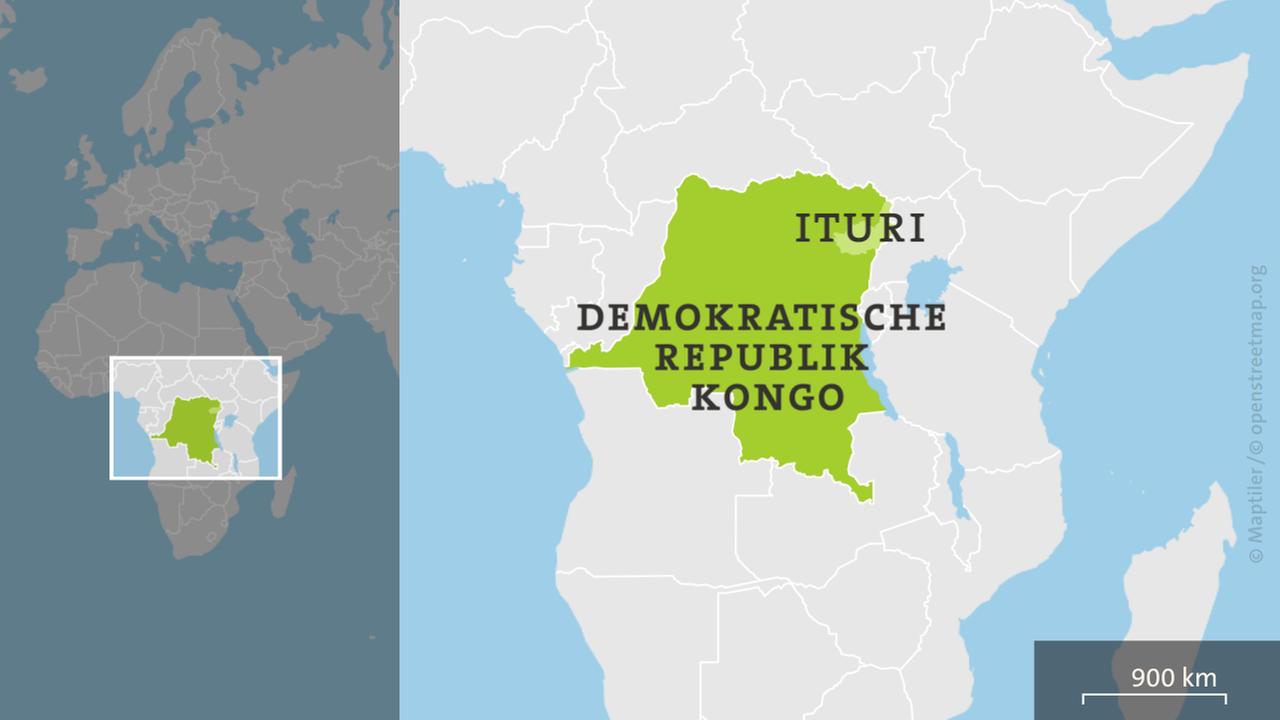In the north-east of the Democratic Republic of the Congo, a militia massacred refugees. According to the authorities, the group killed more than 45 people. A bloody conflict has rocked the Ituri region for years.
At least 46 people have been killed in a militia attack on a refugee camp in the Democratic Republic of the Congo, Central Africa. Local authorities said 23 children were among the victims. The massacre took place in a village in Ituri province, in the east of the country. The cause of the attack was initially unknown.
Authorities said most people were killed by knives and firearms or died in their homes, which were set on fire. A Red Cross spokesman said it believed some of the dead had been beheaded and burned. The dead are internally displaced persons. The refugee camp is located five kilometers from Bole, a UN peacekeeping base.
1.7 million Binnenfüchtlinge Togo
Authorities and Red Cross officials blamed a militia called the Cooperative for the Development of the Congo (CODECO). The group is considered the most violent in Ituri province, which borders Uganda, and has been blamed for several attacks.
The militia is classified as an armed political religious sect. According to her own statements, she defends the interests of the Lendu ethnic group, whose members mainly live as farmers, against the pastoralists belonging to the Hema ethnic group.
Violent conflict between the Hema and Lendu ethnic groups erupted again in 2017. The United Nations says hundreds of civilians have already been killed and thousands displaced. Some 1.7 million internally displaced persons are now residing in Ituri district.
130 armed groups are said to be active
Eastern Congo is considered one of the most dangerous regions in the world. About 130 different armed groups are said to be active across the country. In the volatile neighboring region of North Kivu, the March 23 rebel movement has regained strength in the past year. Therefore, the Congolese government moved its troops from Ituri to North Kivu.
During a visit last week, UN Deputy Secretary-General for Peacekeeping Jean-Pierre Lacroix said that after the partial withdrawal of government forces, the deployment of UN blue helmets in the area was even more important.

